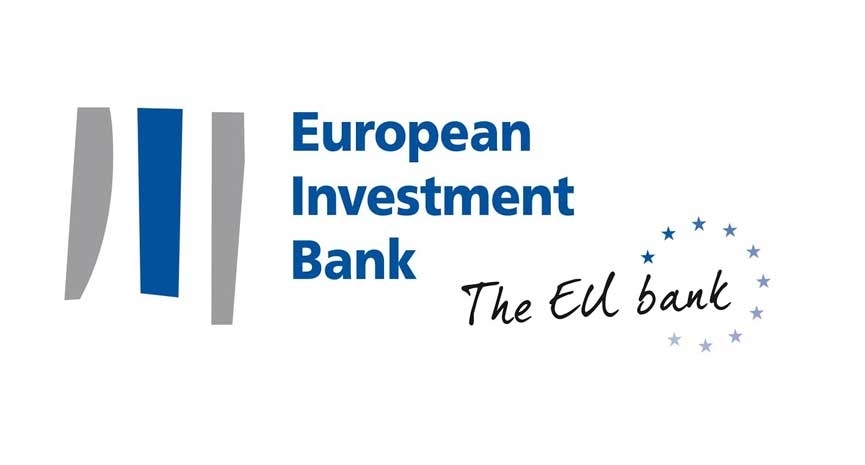EU, European Investment Bank support Malawi transport project
The European Investment Bank (EIB) and European Union (EU) have confirmed support for refurbishing the principal road across landlocked Malawi after signing the EIB’s largest-ever loan for investment in Malawi. Once carried out, road works are expected to reduce transport costs

November 15, 2019: The European Investment Bank (EIB) and European Union (EU) have confirmed support for refurbishing the principal road across landlocked Malawi after signing the EIB’s largest-ever loan for investment in Malawi. Once carried out, road works are expected to reduce transport costs, cut travel time and facilitate exports. Moreover, by upgrading the road to modern standards, significant improvements in safety for road users are also an expected outcome of the project.
EIB financing totaling EUR 139 million (112 billion MWK), in support of the EUR 191 million road rehabilitation programme, was formally agreed at a signature ceremony in Lilongwe. Finance minister, Joseph Mwanamvekha; minister of transport and public works Ralph Jooma; EU ambassador Sandra Paesen; the CEO of the Malawi Roads Authority Eng. Emmanuel Matapa; CEO of the Malawi Roads Fund Administration Stuart Malata; and representatives of the EIB all attended the ceremony.
The EIB loan, with a tenure of 20 years, was signed by Mwanamvekha, Matapa, Malata and Diederick Zambon, responsible for European Investment Bank public sector financing in sub-Saharan Africa.
“This road project is crucial for our country because of its high economic importance for our national and regional economies as it provides an important international corridor between Malawi and neighbouring countries. The bulk of our exports and imports are moved through this corridor. Unfortunately, the road corridor outlived its economic life and had deteriorated overtime, resulting in high maintenance and operating costs for users and this had made goods very uncompetitive due to high transport costs. As a country we cannot afford to just wait and see, therefore the loan from EIB and the Grant from the EU have come at the right time and will go along the way is helping us improve this road corridor.” said Mwanamvekha.
“Improving road links is crucial for sustainable economic development of Malawi and the SADC region, as the M1 road forms part of the north-south corridor linking Malawi and other SADC countries to the port of Dar es Salaam. Once work to upgrade the M1 road is complete, farmers in rural districts will benefit from improved access to local markets and our country will have easier access to international markets. Over the last 40 years the European Investment Bank has helped to improve water supply, agriculture, aviation safety and energy across Malawi and close cooperation between the EIB and Malawi has made the signature of the largest ever EIB loan for investment in Malawi possible today.” stated Jooma.
The EU has been involved in supporting the local transport sector for some time. This grant comes on top of an ongoing EUR 35 million programme to rehabilitate rural roads in 12 districts throughout Malawi.
“The European Union is a key partner of Malawi and upgrading the M1 road will accelerate economic development across the country and provide new opportunities for agriculture. We are pleased to provide EUR 43 million of grant financing, through the EU Africa Investment Platform, for the project alongside national, European and international partners.” said Paesen.
“Upgrading the principal road in Malawi will unlock economic and social benefits across the country and beyond. The new European Investment Bank loan represents our largest ever single engagement in Malawi since the start of operations in 1977. The European Investment Bank is pleased to work with Malawian partners, the European Union and World Bank on this truly a transformational project that will reduce transport costs, cut travel time and facilitate exports within Malawi, to ports and neighbouring countries.” said Zambon.
The investment programme to upgrade the M1 road includes rehabilitation of the main road connection to Tanzania, which carries one-fifth of national exports and is a key link between eastern Zambia and the Indian Ocean port of Dar es Salaam.
Overall, more than 346 kilometres of the road will be transformed, including stretches between Karonga-Songwe (46 km), Kacheche-Chi
weta (66.5 km) and Mzimba Turn Off – to Kamuzu International Airport turn off (234 km). The Karonga - Songwe portion of the road carries 22 percent of Malawi’s foreign trade to Songwe, the border point with Tanzania.
All these priority routes are located in agricultural areas and the upgraded road will directly benefit local communities.
Financing for the Karonga-Songwe section of the M1 road project was provided by the World Bank. The M1 road upgrade program will be implemented by the Roads Authority, under the supervision of the Ministry of Transport and Public Works. Construction is expected to be completed by December 2021.
Over the last decade, the European Investment Bank has provided more than EUR 21 billion for public and private sector investment across Africa, including EUR 2.2 billion for road projects. This has included supporting the improvements to the Great North and Great East Roads in Zambia, national roads in Madagascar, Senegal, and Uganda, construction of the new Kampala by-pass and motorways and rural roads in Morocco, Tunisia, and Egypt.


